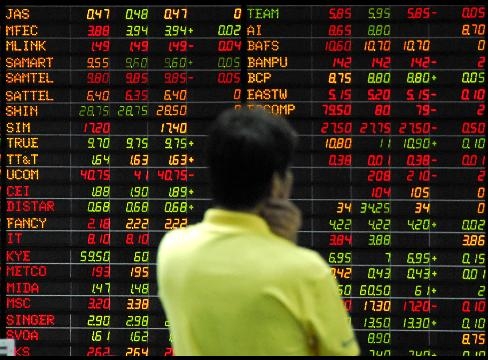
Asia equity fund fees among worlds highest averaging 0.83 %
Global emerging markets equity remains the most traditionally expensive asset class category with median fees averaging 1.0%, up from 0.90% in 2008.
Mercer said that asset management fees for most non-traditional asset classes have fallen following increased scrutiny from cost-conscious investors, according to a report by Mercer. In particular, fees for hedge funds, private equity, infrastructure and real estate have all decreased. Fees for traditional asset classes have varied, with some increases observed in long-only equity and fixed income strategies.
Mercer’s 2010 Asset Manager Fee Survey is a bi-annual report analyzing fee data on more than 20,000 asset management products from over 4,000 investment management firms. The survey covers asset managers in a range of geographies and across numerous products including pooled and separately managed accounts. The study is intended for use as a reference when assessing asset management fees.
Divyesh Hindocha, Global Director of Consulting for Mercer’s Investment Consulting business, said, “The impact of the financial crisis continues to be felt by companies and investors. Although not universal, subdued investment returns have taken the edge off many alternative asset products. Combined with an increased focus on operational costs this trend has put growing pressure on asset managers to reduce the complexity of their products and lower their fees in the pricey alternatives arena.”
“We believe there is room for further simplification and larger reductions in the overall fees charged by asset managers,” he added.
Marianne Feeley, Asia Pacific Head of Manager Research, commented, “In Asia, while we expect to see greater pressure on fees for alternative asset products, it has yet to be manifest in significant reductions in fees. Real estate is a good example where fees still reflect the complexity of running a product where bilingual teams are often necessary and skilled locally-based operators are hard to find.”
Traditional asset classes
Global emerging markets equity remains the most traditionally expensive asset class category with median fees averaging around 1.0% - up from 0.90% in 2008. Small cap equity also continues to be an expensive category with fees averaging around 0.89%. Global and regional equity strategies average 0.70%, whereas fixed income continues to be the cheapest traditional active asset class with average fees around 0.35%.
Mr Hindocha commented, “The observed fee increase for long-only fixed income strategies is somewhat surprising given that there is no shortage of high quality strategies in this area. Fees charged for niche equity strategies such as small cap and emerging markets continue to be higher than for most fixed income strategies, reflecting the value-added potential of the mandates.“
With an average fee of 0.68% pooled funds are more expensive than segregated fees across all comparable mandate sizes. There was no change in average fee levels for pooled vehicles between 2008 and 2010 - across all mandate sizes. Average fees for mandate sizes of $25m have decreased whereas for mandate sizes between $100m and $200m average fees have increased. Segregated fees have increased by on average 0.7 basis points, with the larger mandates increasing by slightly more. “One explanation for the increase in segregated fees is that managers are using fees to ration out demand for those asset classes where there are capacity issues,” said Mr Hindocha.
When comparing the data by regions, emerging markets remains the most expensive, at around 0.87%, with Asia-Pacific a close second at 0.83%. Japan, Europe and US all range between 0.57% and 0.70%. Canada is the least costly, with average fees of around 0.30%. The UK and Australia follow with average fees of 0.46% and 0.47%, respectively.
“Fees for Asian equity remain high in comparison to other regional products. In part, this reflects the heterogeneous nature of the Asian equity market, which is almost as diverse as all of emerging markets. Another factor is that institutional-style products are relative latecomers to the party in these markets and it is still difficult to find local investment professionals who appreciate the difference compared to a retail style of investing,” Feeley added.
























 Advertise
Advertise






